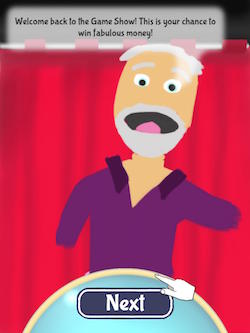
A new “brain training” app could help improve memory for people in the early stages of dementia, according to the results of a recent study.
The app, called “Game Show,” was developed by researchers at the University of Cambridge.
In the study, researchers used the Cambridge Neuropsychological Test Automated Battery Paired Associates Learning Task to compare members of one group (the cognitive training group), who played with the app, to those in a control group. The training group made one-third less errors, needed fewer trials to succeed and improved their memory score by 40%, they found.
Members in the training group also saw improved episodic memory, and they retained more complex visual information.
The authors noted that “the cognitive training group maintained high levels of enjoyment and motivation to continue after each hour of gameplay, with self-confidence and self-rated memory ability improving over time.”
“Patients found the game interesting and engaging and felt motivated to keep training throughout the eight hours,” George Savulich, M.D., lead scientist of the study, said in a statement. “We hope to extend these findings in future studies of healthy aging and mild Alzheimer’s disease.”
In the game, which was played on a tablet computer, players needed to associate geometric patterns with different locations to win gold coins. Participants in the cognitive training group played the game for eight one-hour sessions throughout a four-week span, whereas members of the control group attended typical clinic visits.
The app is targeted to people who have amnestic mild cognitive impairment, a stage between healthy aging and dementia. Currently, no drug treatments are approved for the condition.
The study was published in the International Journal of Neuropsychopharmacology.




